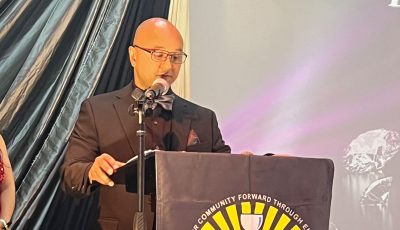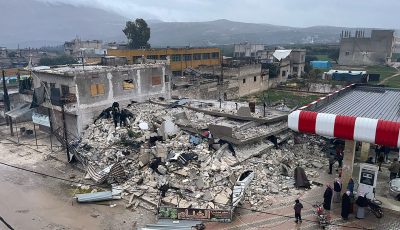Workforce Act means 10 more years, 8,001 more permits
Editor’s Note: This is the second in a four-part series by Delegate Gregorio Kilili C. Sablan, explaining aspects of the Northern Mariana Islands U.S. Workforce Act, which he introduced on Jan. 19.
In December the Commonwealth Legislature passed a resolution asking for the CW program to be extended beyond 2019.
The bill I introduce does just that. The U.S. Workforce Act doubles the time for the CW program by adding 10 years—through 2029.
To be honest, I never expected to be so successful in negotiating this bill with the Republican and Democratic members of Congress, whose approval is necessary to get the legislation passed. In fact, we started out last year with some in our group not wanting to extend the program at all past 2019.
Even though the bill I have now introduced gives us 10 more years for the transition period, I remain concerned. Predicting future labor needs for next year is hard enough, much less for 10 years.
Moving back to full local control of immigration is not going to happen, however, especially given President Trump’s executive order protecting U.S. workers from foreign competition. We have to deal with that reality, not wishful thinking.
A new role for the CNMI governor
But the Workforce Act does give the Commonwealth governor a new advisory role in allocating CW permits. So, if there is a need, particularly to protect public health and safety, the governor can recommend that permits be set aside.
And my bill requires that the secretary of Homeland Security respond promptly and in writing, so that the governor’s recommendations are taken seriously and not brushed aside.
So, my bill does more than simply extend the existing program, as the Legislature asked. It returns some authority to local control.
The Workforce Act provides our economy with more workers, too. Next year, the cap set by the Trump administration is 4,999. My Workforce Act adds 8,001 CW permits. The cap will be reset to 13,000, the same number we had back in 2015.
Three important provisions
My bill, also, does more than just extend the CW program, which the Legislature asked for. The Workforce Act extends three other key policies of the transition program that began in 2009:
—The exemption for the Marianas from the nationwide cap on H visas,
—The E-2C visa for foreign business people invested in the Marianas before the enactment of U.S. Public Law 110-229, and
—The bar on claims of asylum in the Marianas.
Why are those policies so important?
Being able to bring in as many workers with H visas means that any temporary need—like building a resort project, for instance—can get the construction workers.
It also means that, when U.S. mainland companies that want to hire specialists in computer science or engineering, hit the national cap, they could look to the Marianas as a place to put those high-tech H visa holders to work.
Keeping the E-2C visa simply means respecting the decisions made by CNMI Immigration a decade ago in deciding which foreign investors add value to our economy.
Most important, however, is extending the bar on claims of asylum. A lot of people do not understand it, but without that one provision we would have no parole for Chinese tourists. And without Chinese tourists our economy would not have grown the way it has over the last years.
That is why I worked so hard to extend the transition period from 2014 to 2019 with enactment of U.S. Public Law 113-235. Although the Department of Labor had extended the CW program, the other three provisions could only continue by law.
That is what I did, to protect our tourist economy.
Let me hear what you think
I am writing this series of articles, so you, the people I work for, can have a deeper understanding of the legislation I wrote. If you have any questions about how my U.S. Workforce Act helps local workers and local businesses or keeps our tourism economy alive, please, let me know. My e-mail is kilili@mail.house.gov.
Next time, I will write about what the Act does for our local businesses that employ foreign workers. The CW program has meant headaches for them and we try to make it work better in the Northern Mariana Islands U.S. Workforce Act.



























